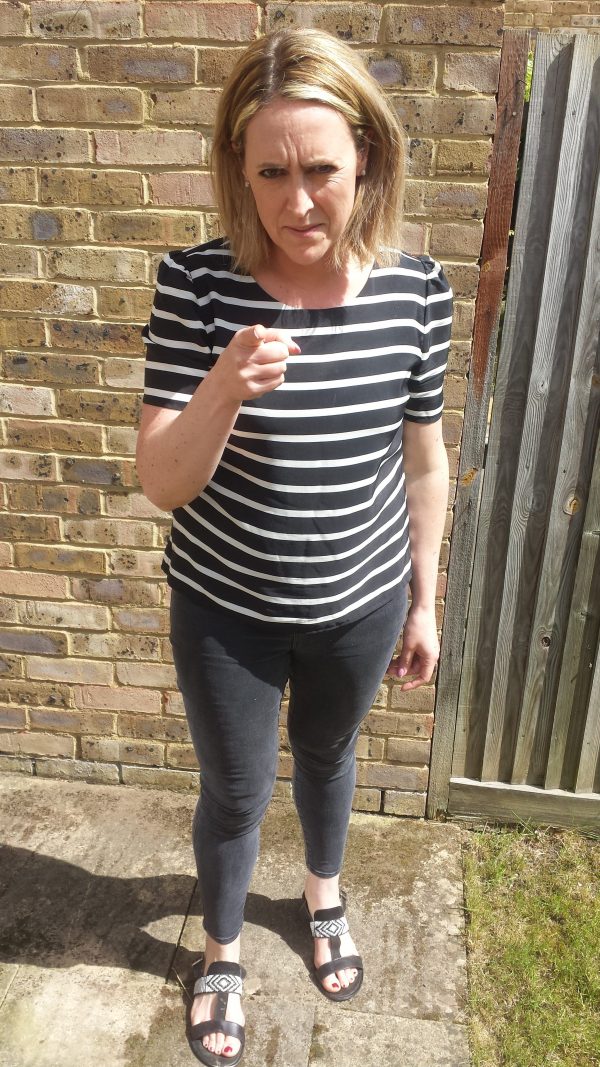
by Michael | Jul 27, 2021 | Blog
Love is easy enough when you’re infatuated. That first stage of a relationship is like walking on air. You’ve got no worries and it’s difficult to stop smiling.
At some point after your engagement or even wedding day, that love changes and develops. It may not be so romantic, but it’s different. It can still be great, though. You’ve really got to know your partner (warts and all!). Maybe there’s offspring in the equation too. Now you’re part of a relationship that requires commitment and responsibility. You’re looking after others, and that’s not always easy. You won’t always see eye-to-eye over everything.
The maudlin nature of this blog surfaced when I realised that my wife and I will have been married 22 years, come Wednesday. I still remember the romantic love section of our relationship. That is a lesser part of our relationship nowadays. However, there are compensations.
We still exchange kisses and hugs. We do things for the other person that we might prefer not to do. We laugh at the same things (usually!). We help each other out and are grateful to each other. We ask each other when unsure of things. I do certain tasks (which I’m better at or prefer doing); Isobel does others. We mostly share the burdens.
I can only speak for myself here, but I believe we have built a close, solid relationship. Yes, over the years we have had disagreements (lots!) and rows (occasionally), but I think we enjoy being in each other’s company and feel we’re generally united.
How have we achieved this?
At the outset, Isobel demanded that I let her know if ever she was upsetting me. She told me this should work both ways. I went along with it. It’s been great at defusing any potentially major crisis before it becomes serious.
We respect each other. If one suggests something that appears dubious to the other, we discuss it. Reasonably and calmly in 99% of cases. We aim at least for compromise. We try and please the other, and try to respond appropriately to the other’s change of mood.
Love takes many forms, and building a relationship demands hard work and persistence. When it works, you can’t beat it!

by Michael | Mar 25, 2019 | Blog
As a celebrant, I bring people together in matrimony. Why shouldn’t I take an interest to what happens to their relationship afterwards?
Marriage
is not easy. You have to work at it. Couples get stuck in a rut. They may feel
that the other partner is treating them badly or unfairly. There may be
contributory stresses (finance, work, a baby, moving house, the in-laws …).
It’s
easy to get angry, feel let down and sorry for oneself. What is more difficult
is to respond appropriately.
Playing
the fault card will not solve the issue. Fixing it yourself may not be a
long-term solution. Letting the problem continue or even worsen will lead to a
deterioration.
So
have a look at these approaches, and see which is likely to be yours.
Taking
the Blame
You may be the submissive type (or have a stubborn partner) and find it easier to accept the blame for everything. Well, that way you avoid conflict.
Over time, your partner will get used to that and will not take responsibility for what they might be doing wrong. You may also get overruled in both trivial and important matters, and your self-esteem will suffer.
Allocating
the Blame
“It’s all your fault” will lead to long-term bitterness (and self-esteem issues). As partners, you make up a team, and both should help each other when one of you is down and needing support.
Mr
(or Mrs) Fix-it
The spouse that takes it upon themself to fix every issue may not be doing the favour that they think. They are actually suffocating their partner’s personal growth (and that can radiate out beyond the marriage). Dependency is not a healthy habit to acquire.
It
also means there is an imbalance of power.
Apathy
If
you’re not bothered about resolving an issue, perhaps you shouldn’t be in a
relationship at all! Instead of negativity, you can be cheering up your spouse,
asking helpful questions and acting as a sounding-board. Offer support and they
may be able to solve the problem they’ve created.
Fatalism
It’s
easy to think that the fates are conspiring against you, when things go awry.
If you believe you are powerless to affect things, you’ll wonder what’s the
point in trying to struggle against fate.
Focussing
on fears and negativity will depress your partner. You will also be unable to
find solutions. You may even attract more of what brought you down in the first
place.
Working
Together
If the partners listen to each other, they can clarify the issue, offer sympathy and support, and come up with solutions. They can cheer each other up and put the issue into perspective.
Doesn’t that sound like the marriage partner you should strive to be?
First things first, of course, if you’re looking for a bespoke wedding ceremony, then please contact me.
For ideas and advice, please subscribe to my YouTube channel: https://www.youtube.com/channel/UCAn4A6oqXAHR0Gqhz0_BG-w?view_as=subscriber
by Michael | May 2, 2013 | Blog
Marriage can be stressful. Can marriage and health really go together?
Apparently so. Cardiologists will tell you that being unmarried increases the risk of heart attacks in both women and men, regardless of age.
Even cohabiting couples have better prospects. Those unmarried – men (168%) and women (175%) – have higher chances of death after heart attacks. So says the “European Society of Cardiology”.
Why?
Reasons could be that people already in ill health may be less likely to marry or more likely to divorce. Alternatively, married people enjoy higher levels of social support, leading them to make healthier choices.
But there could well be other explanations.
Strengthening ties
Whatever the health benefits, you’ll probably agree with my earlier statement that marriage can still be stressful. Everybody needs to work at it.
In order to build that relationship, you should try a few strategies. Many are plain common-sense – but we don’t always do what is sensible!
Eight Suggestions
1. Touch each other regularly. This doesn’t have to be sexual. I remember Jack Canfield stating that about nine hugs a day is ideal.
2. Communicate. Don’t allow grievances to build up. Vent – but don’t overdo it! And don’t criticise for the sake of it. It’s good to validate your partner when you can.
3. Be nice. Just because you’re married doesn’t mean you are justified in taking out all your irritations on your partner. You can still be kind, polite and respectful.
4. Treat your partner like a friend. You both have each other’s best interests at heart, so develop that relationship.
5. Don’t let yourself down. Don’t present yourself to the world as a flirt and attention-seeker (unless that is how you are with your partner). Don’t put strain on your relationship.
6. A little attention won’t hurt. Occasionally showing your partner you care, with a little gift, say, can help cement the relationship. Praise and gratitude are great too!
7. Try and be positive. This will help you both get through the day. Of course, there are going to be problems to be faced.
8. Be prepared to develop. You should (both) try new things from time to time, whether it be a self-development course or a new hobby. Getting stuck in a rut will benefit nobody.
I hope you’ll agree that, with only a little work, you can improve your marriage AND your health at the same time! Please try it – and report back to me!
Michael is a celebrant based in London.
by Michael | Apr 16, 2013 | Blog
What really makes relationships work
What I am going to look at is a very important subject – namely, how to survive marriage and even more, sustain a solid marriage. Sex can play a major part, but that is not what I am going to discuss here (sorry if I am disappointing anyone!).
Relationships need love, but, to survive marriage, they also need to be worked at.
It’s easy enough to get on with your partner when everything is going smoothly. Unfortunately, life is rarely smooth. Disagreements inevitably arise.
Managing conflict is therefore key. Conflicts are not enjoyable, but they are healthy (at least, communication must be taking place!).
I’d like to suggest a few ways in which you can manage conflict.
Some simple strategies
- Try and avoid blaming your partner. Explain your point of view calmly and be prepared to listen and compromise.
- Don’t go calling your partner names. Respect is an integral part of a relationship, and calling them “stupid” or “lazy”, say, isn’t going to help.
- Don’t go silent, even if it avoids conflict (in the short-term). You need to validate your partner by responding, which shows you are listening (you don’t have to be agreeing).
- Focus on the matter at hand. Take one issue at a time! Stick to the particular incident or issue (rather than vaguely saying something like, “That’s typical. You never help out”). Incidentally, you should not allow a build-up of issues – deal with them individually as they arise!
Conclusion
These tips – valuable as they are – are only meant as a beginning. They are quite easy to follow, and can help repair relationships as well as prevent break-downs. Respect is probably the vital ingredient in managing conflict.
Michael Gordon is a celebrant based in London.


